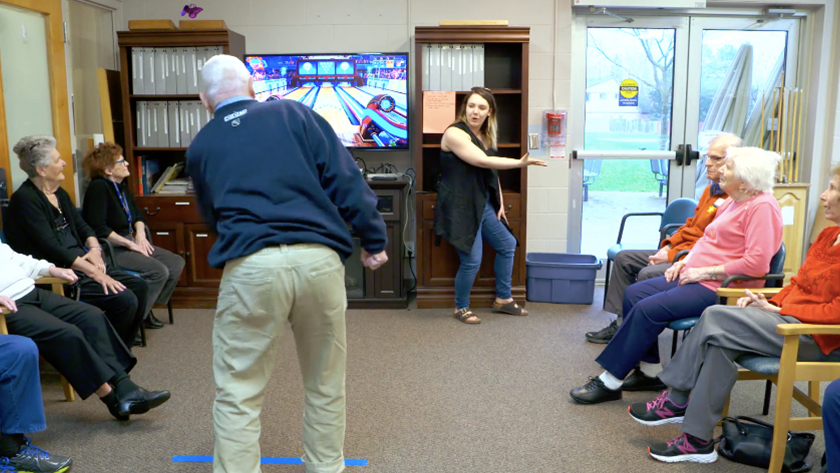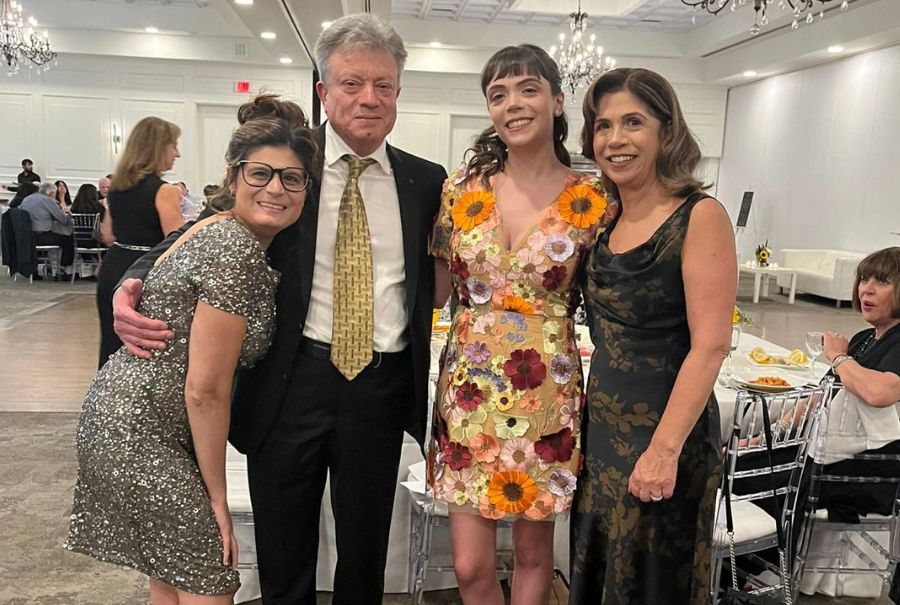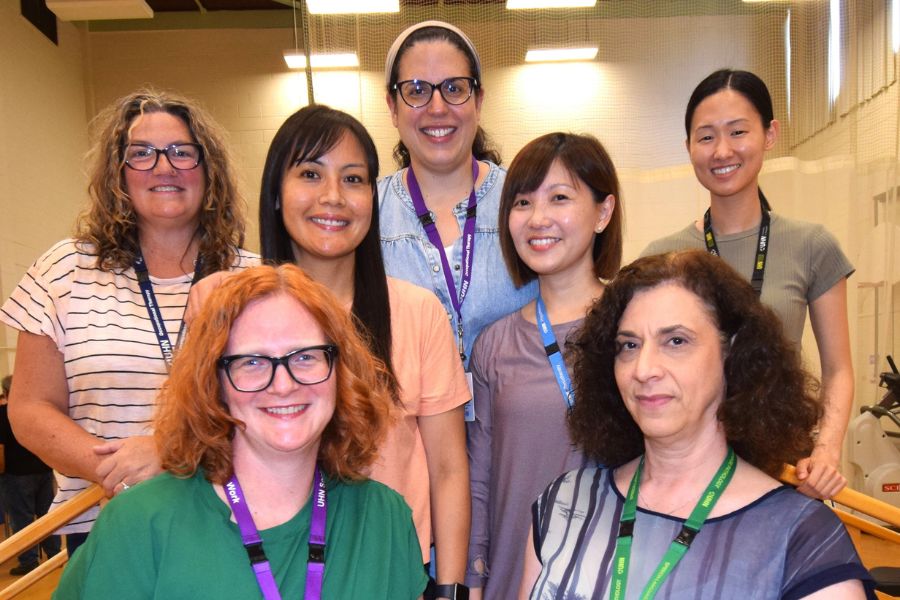(L to R) Dr. Arlene Astell, affiliate scientist at UHN’s KITE Research Institute, and DATE Lab team members Erica Dove and Juanita Atton are exploring how digital technologies can benefit people with dementia. (Photos: UHN)
Researchers led by Dr. Arlene Astell at UHN’s KITE Research Institute are exploring how mixed reality technology could be used to improve the lives of individuals living with dementia.
By immersing users in virtual environments or augmenting real-life settings with overlaying visuals, mixed reality technology provides new ways to interact with the world. A variety of mixed reality platforms exist that can combine motion-capture, video and audio elements to create engaging user experiences, while tracking responses.
Dr. Astell, an affiliate scientist at KITE, and her team at UHN’s Dementia Ageing Technology Engagement (DATE) Lab are exploring whether these technologies can help people who are facing declines in their ability to think clearly and remember things.
“Our interest is in helping people with cognitive impairments, particularly people who have dementia,” says Dr. Astell, who is also a professor of Psychiatry and Occupational Science & Occupational Therapy at the University of Toronto. “We are trying to understand whether we can use mixed reality to keep these individuals on track with their daily activities and maintain their abilities.”
The researchers envision the technology being used to guide tasks such as cooking or doing laundry, with arrows or reminders that could pop up virtually.
To assess the potential of this technology, the team is first evaluating whether existing commercial systems can be adapted for use by individuals living with dementia. Among the systems being studied are the Microsoft HoloLens – a virtual reality headset; the Xbox Kinect – a motion sensing system for video games; and Osmo – a tablet add-on that captures interactions with physical play pieces.
In addition to studying various hardware systems, the team is examining the user interactions with different video games, such as Kinect Bowling.
“We want to see how users respond to the different cues from the systems,” explains Dr. Astell. “Are users responding to the visuals and sounds? Can they react in the required way?”

People with dementia can encounter numerous barriers in using new technologies. Setting up the technology, learning how to use it, manipulating buttons or controls, interacting with software and retaining everything learned can be cognitively demanding.
Trade-offs arise between the amount of energy required to learn a new technology and the benefits provided. Dr. Astell notes that “this is where trying out different systems is really important.”
The current project builds upon prior research from the DATE Lab. This includes work led by doctoral student Erica Dove, who is studying how these technologies can be used to support exercise programs; and by Juanita Atton, a former student, who curates a list of tablet-based games that are suitable and easy-to-use for individuals living with dementia (to see the list, check out AcTo Dementia.
In addition to providing entertainment and promoting physical activity, video game technologies can encourage social bonding and understanding.
“We have found that once people see that individuals with dementia can use these technologies and are interested, there is a shift in attitude about what they can do,” Dr. Astell says. “It challenges the stigma.”
By studying the application of mixed reality technologies in daily life, Dr. Astell’s team is charting new paths that have the potential to help people with dementia live their lives to the fullest.
Read more about the study.
This study was supported by generous donors to UHN Foundation.


